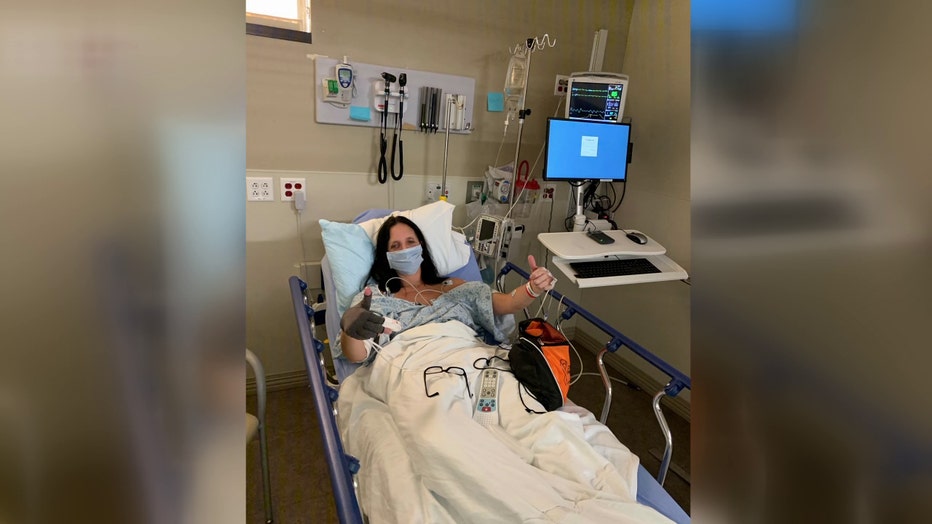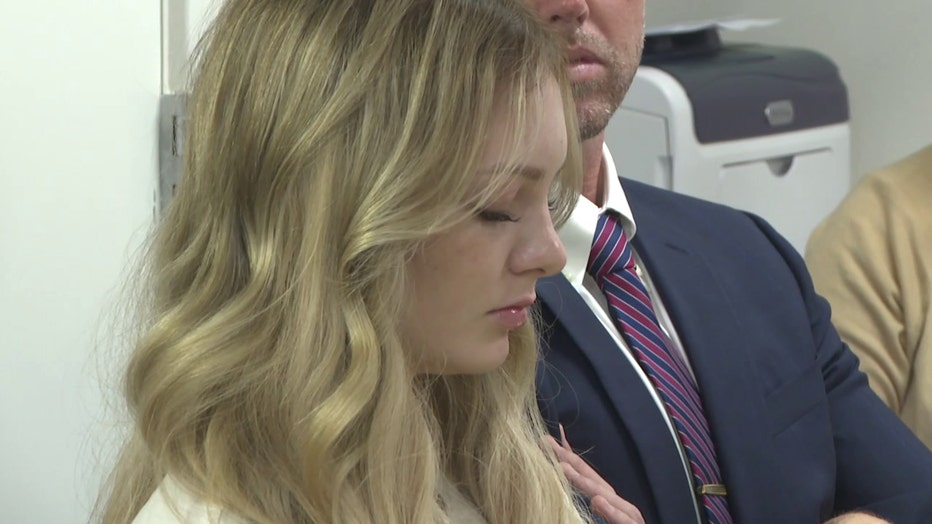'An unseen pain': Woman describes living with CRPS as 'Take Care of Maya' trial continues
VENICE, Fla. - As the trial between the family of Maya Kowalski and Johns Hopkins All Children’s Hospital continues, those who say they understand Maya’s condition are sharing more about complex regional pain syndrome.
Deborah Jankowski was first diagnosed with complex regional pain syndrome (CRPS) in 2015. She didn’t know anything about it and spent some time finding the right doctors and treatments. She calls it a disease that changed her life forever.
"I describe it as two different things, one, very bad sunburn, and then you take a razor to shave your legs, and it feels like you just cut your leg all the way up," said Jankowski about what having CRPS feels like. "It's also been described as just throwing somebody just lighting you on fire."
The National Institutes of Health said CRPS is a rare pain disease that can follow an injury, and it’s tough to diagnose.
"It's like an unseen pain. You can't see it," she said. "I've been tested for fibromyalgia. I've been tested for MS, POTS, Parkinson's. They thought I had four strokes, did brain MRIs. It's just CRPS."

Ever since her diagnosis, Jankowski has focused on raising awareness through her non-profit CRPS Warriors Foundation in California, where she is the CEO and founder. She said they have a national and global presence, including working with a doctor who works on research in Florida.
"Whether it's finding a doctor in their area or getting them the funding for a scholarship to get the treatments they need, this is the services that we provide," said Jankowski.
PREVIOUS: Family in Netflix’s ‘Take Care of Maya’ takes lawsuit against Johns Hopkins All Children’s to court
There’s no cure, so treatments can range from acupuncture and nutrition to physical therapy and massage or ketamine therapy. Ketamine is the same drug Maya Kowalski’s doctor prescribed her when she was a young child with CRPS, details that are coming up in court as a trial continues between her family and Johns Hopkins All Children’s Hospital.
The doctor who prescribed ketamine for Maya is not associated with All Children’s, and doctors there did not agree with the treatment.
"I have to make it very clear that not everybody's treatments are the same, because what works for me may not work for Maya. Or what works for Maya and may not work for me," said Jankowski.

The disease can take a toll on your body and your life. Jankowski said she’s currently bedridden.
"There's a lot of anxiety and depression that come with it. I was diagnosed with PTSD after I got CRPS. I've never had any type of history like that," said Jankowski.
So outside of good doctors and treatments, she said a strong support system and better awareness are vital.
"This is what we need. This is what Maya needs. This is what every child out there needs than every adult battling CRPS and their families need," said Jankowski.
She said treatment, a psychologist along with a pain management doctor and primary care doctor are all important for patients with CRPS. Scientists are studying ways to better treat symptoms, and it helps when doctors can quickly catch the condition.

